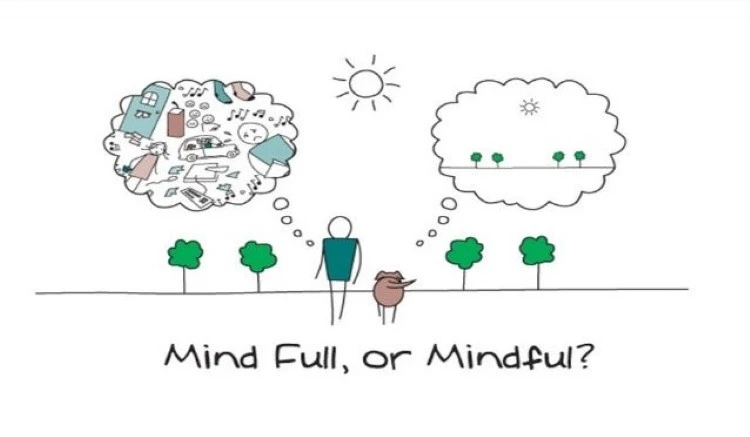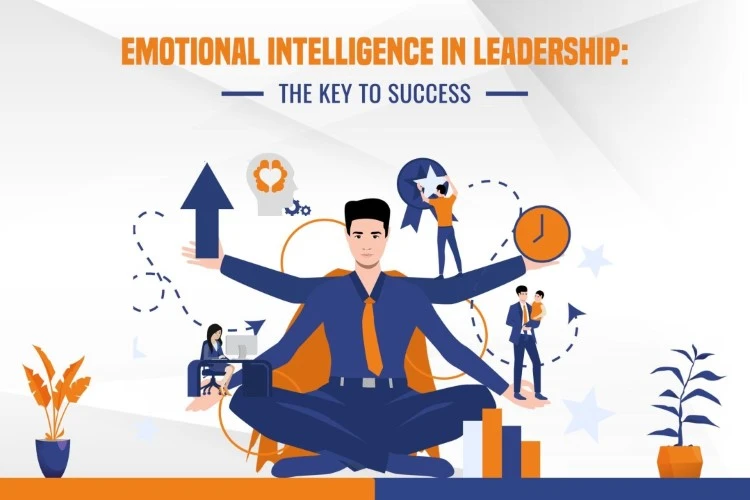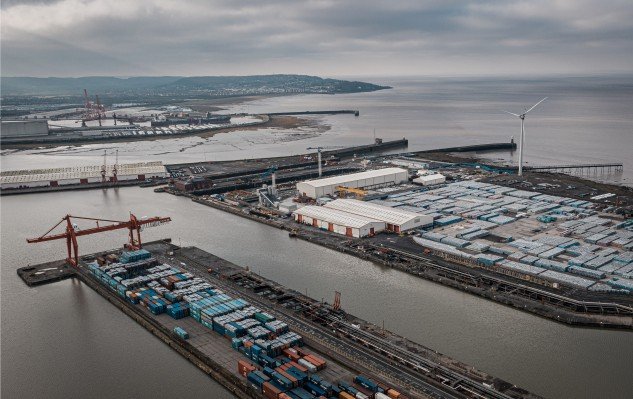Mindful leadership will help the new generation of authentic leaders to restore trust in their leadership and to build sustainable organizations known for their harmony. Its ultimate goal is to create a more harmonious and peaceful world for all to live in
Bill George
In today’s fast-paced and ever-evolving world, effective leadership has become a crucial factor for success. At the same time, amid concerns about climate change, social inequality, and environmental degradation, a new paradigm is emerging – one that emphasizes not only profitability but also sustainable and mindful development. In this dynamic landscape, where the pursuit of success intersects with pressing global challenges, the role of a new type of leadership has never been more vital. This shift is evident in the changing nature of work processes and the evolving expectations of the new generation. The digitalization of the workplace and the changing needs of a younger labor force have created a modern work environment characterized by personal responsibility, independence, and mobility. However, some scholars argue that we are currently experiencing a leadership crisis.

For example, a McKinsey study identified that 77% of leaders thought they were doing a pretty good job and their people were pretty engaged. 82% of their people disagreed. As Jacqueline Carter, one of the authors of the book “The Mind of the Leader: How to Lead Yourself, Your People, and Your Organization for Extraordinary Results” notes: “We found surveys, including one that said 65% of employees would forgo a pay raise to see their leader fired”.
Mindful leadership as a transformative force for sustainable development
In these circumstances, the emergence of a new paradigm, mindful leadership, is timely and appropriate. This approach not only focuses on short-term goals and profitability but also embraces a conscious understanding of the long-term impact on the environment, society, and mental well-being. As B. George, Professor of Management Practice and Henry B. Arthur Fellow of Ethics at Harvard Business School, former chairman and CEO of Medtronic, and author of “True North: Discover Your Authentic Leadership”, notes: “Mindful leadership will help the new generation of authentic leaders restore trust in their leadership and build sustainable organizations known for their harmony. Its ultimate goal is to create a more harmonious and peaceful world for all to live in”.
What does mindful leadership mean?
Mindfulness is about enhancing mental effectiveness to help individuals realize more of their potential both professionally and personally. Since mindfulness involves being present in the moment with a calm, focused, and clear mind, a mindful leader is someone who embodies these qualities.

We can identify several features and principles of mindful leadership in more detail. However, it should be borne in mind that we are talking about an ideal type of leadership:
- Present moment awareness. Mindful leaders cultivate the ability to be fully present in the current moment. This involves focusing on the task at hand, listening actively during conversations, and avoiding distractions to promote clear and effective decision-making.
- Self-awareness. Mindful leaders engage in self-reflection and self-awareness practices. By understanding their thoughts, emotions, and reactions, they can better regulate their responses, make informed decisions, and foster positive relationships with others.
- Emotional intelligence. Mindful leadership emphasizes emotional intelligence – the ability to recognize, understand, and manage one’s own emotions and those of others. This skill is crucial for building strong interpersonal relationships and creating a positive work environment.
- Non-judgmental acceptance. Mindful leaders approach situations and individuals without immediate judgment. They cultivate an open-minded and non-reactive stance, allowing for a more thoughtful and compassionate response to challenges and diverse perspectives.
- Resilience in the face of challenges. Mindful leaders develop resilience, the ability to bounce back from setbacks and challenges. By staying present and maintaining composure, they can navigate difficulties more effectively, inspiring confidence and stability among their teams.
- Effective communication. Mindful leaders prioritize clear and mindful communication. They listen actively, seek to understand the perspectives of others, and communicate with empathy and compassion. This promotes a culture of openness and trust within the organization.
- Compassionate leadership. Mindful leaders embody compassion, not only for themselves but also for their teams. They understand the human element in leadership and strive to create a supportive environment where individuals can thrive both personally and professionally.
- Strategic and conscious decision-making. Mindful leaders make strategic decisions based on a thoughtful consideration of all relevant factors. They take into account the impact of their actions on other people, the organization, society, and the environment. By approaching decision-making with a clear mind and open awareness, they can make choices that align with the organization’s long-term goals and values.
- Employee well-being. Mindful leaders emphasize not only achieving goals but also prioritize the well-being of their employees. They recognize the importance of work-life balance, mental health, and a positive work environment in fostering productivity and satisfaction among team members.
- Continuous learning and growth. Mindful leaders embrace a mindset of continuous learning and personal growth. They recognize that leadership is an evolving journey and engage in ongoing development to enhance their mindfulness skills and leadership effectiveness.
Mindful leadership plays a crucial role in nurturing the next generation of leaders by imparting not only practical leadership skills but also fostering a mindset that embraces compassion, resilience, and ethical decision-making. By doing so, they contribute to the creation of a generation of leaders who are not only effective in their roles but also mindful of their impact on individuals and society.

Mindfulness of leaders can enhance sustainable development in the following ways:
- Long-term vision and environmental responsibility.
Mindfulness practices promote empathy and understanding of interdependence. That is why conscious leaders tend to look at the long term, considering the consequences of their decisions on future generations and the planet. This forward-thinking approach is essential for sustainable development, which aims to meet the needs of the present without compromising the ability of future generations to meet their own needs. Mindful leaders are attuned to the environmental impact of decision-making and business operations. They are more likely to adopt eco-friendly practices, reduce waste, and embrace sustainable technologies. By integrating environmental responsibility into the core of their activities, mindful leaders contribute to sustainable development by minimizing the ecological footprint of their operations.
- Enhanced decision-making.
Mindfulness promotes clarity of thought and emotional intelligence, enabling leaders to make well-informed and ethically sound decisions. In the context of sustainability, leaders need to navigate complex challenges that often involve trade-offs between economic, political, social, and environmental priorities. Mindful leaders are better equipped to balance these considerations and make decisions that contribute to the overall well-being of their organizations and(or) society.
- Resilience in the face of challenges.
Mindful leaders are more resilient in the face of challenges, adapting to unforeseen circumstances with a calm and composed demeanor. This resilience is crucial for addressing the dynamic and unpredictable nature of sustainability issues. Whether dealing with climate change impacts, social inequalities, or economic shifts, mindful leaders can navigate these challenges with a focus on long-term sustainability goals.

- Adaptability to technological advances and innovative thinking.
The rapid development and pace of technological advancement requires leaders to adapt and innovate. Mindfulness enhances cognitive flexibility and creativity, enabling leaders to embrace changes responsibly and be open-minded. Sustainable leadership involves leveraging technology for positive societal and environmental impact while mitigating potential risks as well as using new organizational practices and culture and making decisions outside of stable stereotypes.
- Employees and other people well-being.
If we speak about organization mindful leadership extends to creating a workplace culture that prioritizes employee well-being. This focus on the holistic health and happiness of employees aligns with the social dimension of sustainability. Organizations led by mindful leaders tend to foster positive working environments, leading to increased employee satisfaction, productivity, and retention as well as their self-development. At all levels, conscious leaders are inclined to make socially responsible decisions and resolve the issues of inclusion and accessibility.
- Stakeholder engagement.
Sustainable development requires collaboration and engagement with a diverse set of stakeholders. Mindful leaders excel in building meaningful connections, actively listening to various perspectives, and fostering a sense of shared purpose. This inclusive approach contributes to the development and implementation of sustainable practices that resonate with the values and needs of all stakeholders.
On the whole mindful leaders can play a pivotal role in promoting sustainable development by fostering a holistic, empathetic, and future-oriented approach to decision-making and organizational management. As leaders cultivate mindfulness, they contribute to a more sustainable and equitable world. Examples of how this happens in reality can be found in Mindful Leadership in Action: Paving the Path to Sustainable Development (Part 2).


